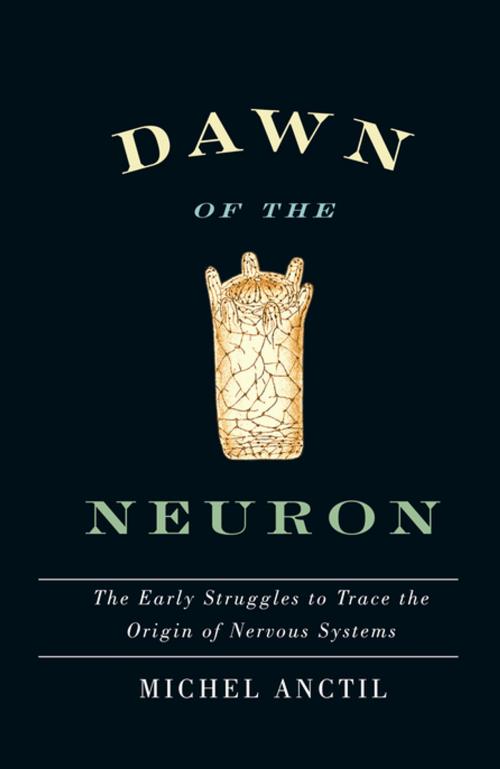Dawn of the Neuron
The Early Struggles to Trace the Origin of Nervous Systems
Nonfiction, Science & Nature, Science, Other Sciences, History| Author: | Michel Anctil | ISBN: | 9780773597334 |
| Publisher: | MQUP | Publication: | October 1, 2015 |
| Imprint: | MQUP | Language: | English |
| Author: | Michel Anctil |
| ISBN: | 9780773597334 |
| Publisher: | MQUP |
| Publication: | October 1, 2015 |
| Imprint: | MQUP |
| Language: | English |
In science, sometimes it is best to keep things simple. Initially discrediting the discovery of neurons in jellyfish, mid-nineteenth-century scientists grouped jellyfish, comb-jellies, hydra, and sea anemones together under one term - "coelenterates" - and deemed these animals too similar to plants to warrant a nervous system. In Dawn of the Neuron, Michel Anctil shows how Darwin's theory of evolution completely eradicated this idea and cleared the way for the modern study of the neuron. Once zoologists accepted the notion that varying levels of animal complexity could evolve, they began to use simple-structured creatures such as coelenterates and sponges to understand the building blocks of more complicated nervous systems. Dawn of the Neuron provides fascinating insights into the labours and lives of scientists who studied coelenterate nervous systems over several generations, and who approached the puzzling origin of the first nerve cells through the process outlined in evolutionary theory. Anctil also reveals how these scientists, who were willing to embrace improved and paradigm-changing scientific methods, still revealed their cultural backgrounds, their societal biases, and their attachments to schools of thought and academic traditions while presenting their ground-breaking work. Their attitudes toward the neuron doctrine - where neurons are individual, self-contained cells - proved decisive in the exploration of how neurons first emerged. Featuring photographs and historical sketches to illustrate this quest for knowledge, Dawn of the Neuron is a remarkably in-depth exploration of the link between Darwin's theory of evolution and pioneering studies and understandings of the first evolved nervous systems
In science, sometimes it is best to keep things simple. Initially discrediting the discovery of neurons in jellyfish, mid-nineteenth-century scientists grouped jellyfish, comb-jellies, hydra, and sea anemones together under one term - "coelenterates" - and deemed these animals too similar to plants to warrant a nervous system. In Dawn of the Neuron, Michel Anctil shows how Darwin's theory of evolution completely eradicated this idea and cleared the way for the modern study of the neuron. Once zoologists accepted the notion that varying levels of animal complexity could evolve, they began to use simple-structured creatures such as coelenterates and sponges to understand the building blocks of more complicated nervous systems. Dawn of the Neuron provides fascinating insights into the labours and lives of scientists who studied coelenterate nervous systems over several generations, and who approached the puzzling origin of the first nerve cells through the process outlined in evolutionary theory. Anctil also reveals how these scientists, who were willing to embrace improved and paradigm-changing scientific methods, still revealed their cultural backgrounds, their societal biases, and their attachments to schools of thought and academic traditions while presenting their ground-breaking work. Their attitudes toward the neuron doctrine - where neurons are individual, self-contained cells - proved decisive in the exploration of how neurons first emerged. Featuring photographs and historical sketches to illustrate this quest for knowledge, Dawn of the Neuron is a remarkably in-depth exploration of the link between Darwin's theory of evolution and pioneering studies and understandings of the first evolved nervous systems















